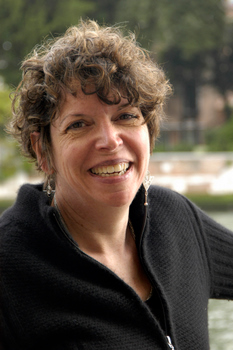$10.2 Million to Expand Study of Delinquent Youth
Funds will be used to investigate how incarceration affects health disparities in HIV/AIDS
 |
| Linda A. Teplin, PhD, Owen L. Coon Professor of Psychiatry and Behavioral Sciences, is the principal investigator on a study recently awarded $10 million-plus from the National Institutes of Health to expand research on how incarceration affects health disparities in HIV/AIDS. |
More than any other racial/ethnic group, African Americans are disproportionately incarcerated and suffer from HIV/AIDS.
A $10.2 million grant from the National Institutes of Health, including the National Institute of Drug Abuse and National Institute on Alcohol Abuse and Alcoholism, will enable researchers at Northwestern University Feinberg School of Medicine to investigate how disproportionate confinement of racial/ethnic minorities affects health disparities in the HIV/AIDS epidemic.
The new grant will give a new focus to the Northwestern Juvenile Project, the largest longitudinal epidemiological study of mental health needs and outcomes of delinquent youth.
Given the new direction of the research and its contributions to shaping public health policy, the University also is changing the name of Feinberg’s research program, from psycho-legal studies to health disparities and public policy.
“We’ve been studying these kids since they were first arrested and detained in the late 90s,” said Linda A. Teplin, PhD, the Owen L. Coon professor of psychiatry and behavioral sciences at Feinberg and principal investigator of the study. “Now they are in their late 20s and early 30s, and we are studying their outcomes as adults. We are investigating how the deprivations suffered while they were incarcerated result in risk-taking behavior when they are released into the community or re-incarcerated.”
The sample of the Northwestern Juvenile Project, which started in 1995, is unique because it includes females and males and is racially and ethnically diverse.
The new study addresses key omissions in current research, specifically when it comes to health disparities among African Americans.
“We know African Americans suffer disproportionately from HIV,” said Teplin, who is also vice chair of research in psychiatry and behavioral sciences at Feinberg. “We also know that they are disproportionately incarcerated and suffer disproportionately from the consequences of substance abuse. Yet, to date, no one has put it all together. In fact, persons who become incarcerated are often dropped from studies of patients.”
Karen M. Abram, PhD, associate professor of psychiatry and behavioral sciences, Jason Washburn, PhD, research assistant professor of psychiatry and behavioral sciences, Leah Welty, PhD, assistant professor in preventive medicine, Frank Palella, MD, associate professor of infectious diseases, and Mina K. Dulcan, MD, professor of psychiatry and behavioral science, work with Teplin to lead nearly 35 staff.
The five-year study, “Drug Abuse, Incarceration and Health Disparities in HIV/AIDS,” will examine how incarceration, release, and re-entry into the justice system affects drug use behaviors, HIV/AIDS sex risk behaviors and injection risk behaviors, and the relationship between patterns of drug use and disorder and HIV/AIDS risk behaviors.
“To date, health researchers have focused on risky behaviors during incarceration. But, our prior studies have found that risky behaviors are less common in correctional facilities than in the community,” Teplin said. “We anticipate that the deprivations people suffer while incarcerated may increase subsequent risk-taking behaviors in the community, such as sharing needles or having unprotected sex.”
Many of the study’s more than 1,800 participants have remained part of the Northwestern Juvenile Project since the study began in 1995. When this project is complete, Teplin said she hopes to conduct an intergenerational study, examining the participants’ children.






